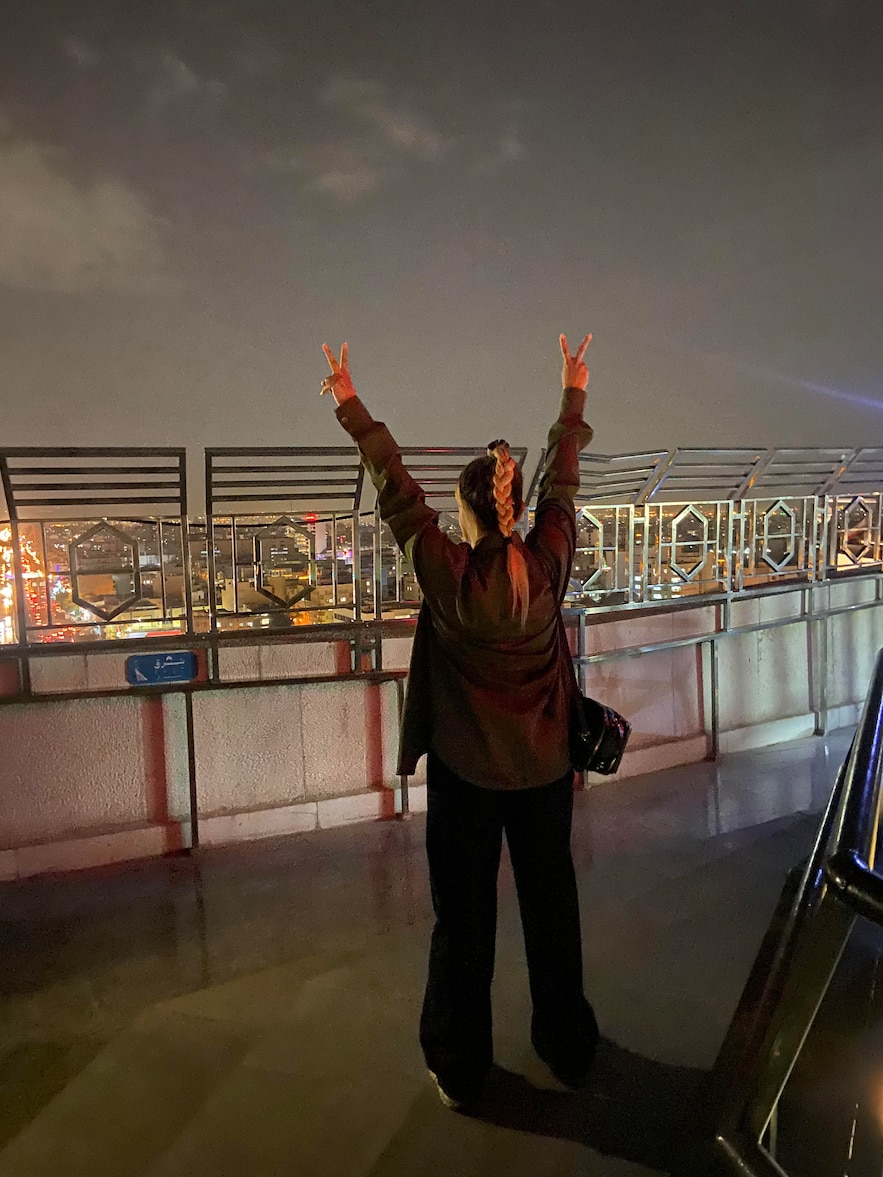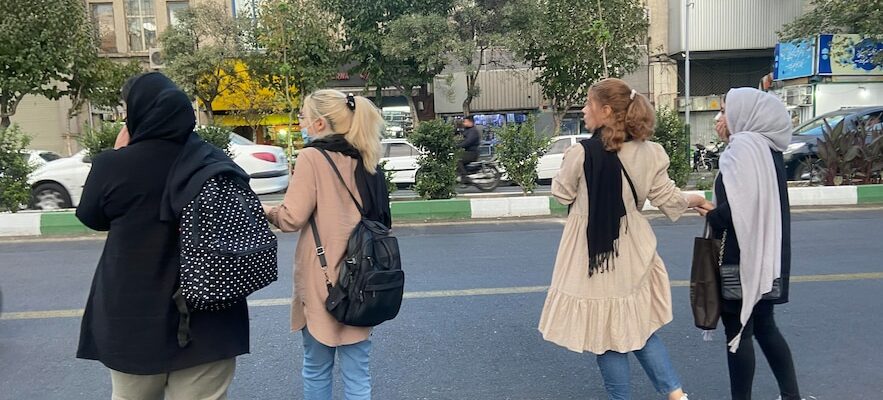“To shed light on these people, on these truly courageous people, who command respect and who unfortunately do not have the attention of the international community”: this was the ambition of French journalist Anne-Isabelle Tollet when she set out to travel to Iran, posing as a tourist. Once very popular – especially with the French – during the years of Rohani’s presidency (2013-2021), organized trips are becoming increasingly rare. Anne-Isabelle nevertheless manages to find one of the last tours validated by the authorities. At the end of September 2023, she travels to a country that has become practically inaccessible to Western journalists. The country has indeed toughened its policy towards foreign reporters. As revealed by a group of hacktivists in the opposition media in exile Iran internationalthe Islamic Republic has sentenced 44 foreign journalists in absentia. The situation of local journalists is also worrying, confirms Jonathan Dagher, head of the Middle East desk at RSF: at least 14 Among them have been charged since 2022 with “propaganda against the state”, “gathering and collusion against national security” or “publication of lies, defamation, slander, threats”.
The most symbolic cases remain those of Niloofar Hamedi and Elaheh Mohammadi, imprisoned for several months and recently released on bail, but still under threat of re-incarceration. In their articles, they were the first to mention the death of the young Iranian Kurd Mahsa Amini, a young girl with no history killed in detention for wearing a veil incorrectly, just two years ago. Although arrests of young women are common in the Islamic Republic of Iran, where wearing the veil is mandatory, this tragic and unjustified death had particularly affected the population, which had demonstrated throughout the country, giving rise to the “Woman, Life, Freedom” movement. A revolt crushed in blood, and whose harsh repression explains the absence of large-scale protests.
High school girls met in Tehran by Anne-Isabelle Tollet.
© / Anne-Isabelle Tollet
For Mahnaz Shirali, a sociologist of Iranian origin, author of Window on Iran, the cry of a gagged people (Ed. Les Pérégrines, 2021), we should not believe that the revolt is definitively buried. “The Iranian people have decided since 2019 – with the first major demonstrations against the cost of living – to overthrow the power. It is a long-term process.” Anne-Isabelle Tollet confirms that the images seen on social networks of young women unveiled are not anecdotal. In The Forbidden Journey which will be published on September 12 by Editions du Cherche Midi, she tells the story of these young girls encountered in the streets and parks, the men who support them, and a movement that is trying to exist in an intensely repressive atmosphere. “I have seen unveiled women in all the cities I have visited except the religious city of Qom. You can feel this need to breathe everywhere,” confirms this experienced reporter, who has covered Pakistan for many years and in particular the case of Asia Bibi, a Christian woman sentenced to death for blasphemy, with whom she co-wrote Finally free! (Editions du Rocher, 2020).
In her travelogue, Anne-Isabelle Tollet also describes a schizophrenic society, full of contradictions. When the rich dance at night in their chic apartments in the north of the capital, to the sound of Western music and a glass of champagne in hand – banned practices – but diligently wear the veil during the day so as not to attract the attention of the authorities, young students defy them by posing bareheaded on the Azadi Tower (an emblematic monument of Tehran) and posting the images on social networks, risking arrest, imprisonment, torture and rape. Systematic violence, as evidenced by the words of Narges Mohammadi, 2023 Nobel Peace Prize winner, whose letter is reproduced in the book.
“This violence is inherent to the Islamic Republic,” recalls Mahnaz Shirali, who remembers that, as a young woman in the newly revolutionary Iran after 1979 (the date of the Islamic revolution, which saw the Shah deposed in favor of the religious), she had seen classmates being shot. This is also evidenced by the record number of hangings. In her book, Anne-Isabelle Tollet looks back at the crazy spiral that can lead to a death sentence. “An Iranian hanged every five hours,” summarizes Mona Jafarian, an activist who launched her social media outlet “Femme Azadi” to raise awareness of the seriousness of the situation in the country. The young woman publishes videos of acts of civil disobedience against the regime. Her compatriots also testify via secure voice messages, the sounds of which she reworks so that the author cannot be identified by the authorities. She contrasts the official turnout of 49% in the June presidential election, which was one of the lowest in the history of the Islamic Republic, with the many videos received from Iranians showing empty polling stations, saying that the figure is already inflated.

A young woman unveiled at the top of the Azadi Tower, a central monument of Tehran
© / Anne-Isabelle Tollet
Support for Hamas
“The population alone cannot overthrow a system as organized as that of the Islamic Republic,” notes Mahnaz Shirali, believing, like many opponents, that only the total banishment of the regime, in particular by registering the Revolutionary Guards as a terrorist organization, will succeed in stopping it. But the international equation takes into account other subjects, in particular the question of Tehran’s nuclear program, regrets Anne-Isabelle Tollet. Despite Tehran’s stated support for Hamas and its other proxies – the Houthis who attack ships in the Red Sea or Hezbollah, in the name of supporting the Palestinians in the conflict triggered by the October 7 massacre – discussions have been taking place since the spring between Americans and Iranians in Oman.
Faced with a catastrophic economic situation and blocked future prospects, the fed-up feeling is nonetheless being expressed “more and more openly”, believes Anne-Isabelle Tollet. “I am thinking in particular of the nurses. They demonstrated in August for the first time. People are fed up with being underpaid, treated like dogs.” Her trip there confirmed to her that “the more time goes by, the more this revolution, which is not only silent, continues. The Islamic Republic is disintegrating in the face of a generation that has an increasingly strong distrust of the regime.” The Forbidden Journey, in the form of a lively and sincere story, allows us to open a window onto this somewhat forgotten Iran.
.
